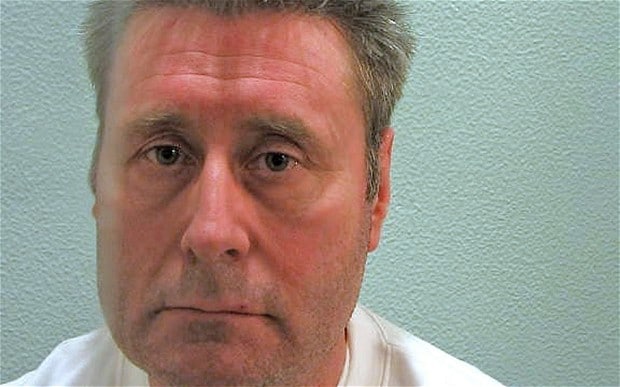John Worboys: ‘Let the victims to have their say’
Hold the parole Board decision in Worboys up to light and permit the voiceless victims to have their say, writes Simon McKay.
The impending release of John Worboys, the so called black-cab rapist, following the imposition of a sentence of indefinite imprisonment in 2009 has given rise to a great deal of comment. Many lawyers have dismissed the possibility of Worboy’s victims seeking a judicial review of the Parole Board’s decision. This is on the basis that they lack ‘standing’. The judiciary’s judicial review guide, revised as recently as last year, describes this as someone with ‘sufficient interest’ and that ‘claimants tend to be persons aggrieved’ by a decision by a public body who wish to challenge them in the High Court. It also adds that, ‘those whom a decision directly and adversely affects will seldom (if ever) be refused relief for lack of standing’.
The closest the courts have come to considering the role of victims in this context is in the case of James Bulger.
James, aged just two years old in 1993 when he was murdered by ten years olds Robert Thompson and Jon Venables. Thompson and Venables were convicted the same year but the decision about their sentence was mired in legal difficulties that were not resolved until many years later. Once they were, the minimum term (or tariff) they were to serve in prison was determined by the Lord Chief Justice after considering a view on sentence expressed by the Home Secretary.
In the Bulger case, the victim’s father challenged the tariff that was eventually imposed. It was held that he did not have the necessary standing to do so. Reliance was placed on an earlier case where the court of appeal held, that ‘the opinions of the victim, or the surviving members of the family, about the appropriate level of sentence do not provide any sound basis for reassessing a sentence’.
This is unquestionably a correct statement of the law. But it isn’t exactly the same as the Worboys case. One critical aspect of the decision in Bulger and the related cases was that the proceedings were criminal in nature and ‘the Crown and the defendant, are both able to, and do, challenge those judicial decisions which are susceptible to judicial review’. The nature of the present proceedings is not criminal; the prosecution has no right of appeal. The secretary of state does have standing, although it has been said that there are no reported cases where the Minister has brought a challenge. This is hardly surprising; it is an invidious position for a government department to be in. This underscores the importance of looking elsewhere for someone to ensure the Parole Board’s decision-making is what it should have been; the victim is the obvious and most qualified person to do so.
The role of victims has been given increasing prominence in the criminal justice system. It can probably be traced back, at least in recent times, to Lord Steyn’s powerful speech in a judgment delivered just before the Bulger judgment where he said that, ‘in a criminal case this requires the court to consider a triangulation of interests. It involves taking into account the position of the accused, the victim and his or her family, and the public’. There has been greater acknowledgment of since, in one case the High Court recognising that ‘it is clear that the interests of the victim are rightly afforded great (and growing) importance in the criminal process’.
In certain circumstances, victims and witnesses may be given the right to make representations on issues, such as the release of their medical records or their identities where anonymity has been promised. The role and value of the victim-impact statement and the right to request a review of a decision not to prosecute are all examples where the participation of the victim has been enhanced without encroaching on the fair trial guarantees of defendants.
One area where victims’ rights have been found wanting is in the release of those convicted of offences. The Worboys case exemplifies this. It is not just the failure to notify victims of the likelihood of release where reform is needed. It has, in the aftermath of this week’s news, been recognised decision-making needs to be more transparent and the consultation that has been announced is very welcome. But more can be done. A wide range of jurisdictions, including Canada and the United States permit victims or their families to attend parole hearings and give evidence. The United Kingdom’s reticence about the role of the victim in the post-sentencing process must be confronted.
The Worboys case also represents a confluence of other issues of public importance: the treatment of rape victims; the efficacy of the imprisonment for public protection and parole board decision making in light of the rates of re-offending; the integrity of the sex offender treatment programme; and police liability and systemic investigative failures (read the scathing judgment of Mr Justice Green in the civil actions brought by Worboys’ victims against the Metropolitan Police for an eye-watering catalogue of what went wrong with the investigation).
It is right that the role of the victim in this context is uncertain. It is also right to acknowledge that as a specialist tribunal, the court will be reluctant to interfere with a properly reasoned decision of the Parole Board. But one of the consequences of a legal challenge may be to hold the current opaque decision up to the light. Equally, it can acknowledged that a challenge to Worboys’ release is not about revenge or retribution. It is not the monopoly of lawyers to soberly opine to quell public disquiet. As Marina Hyde noted in the Guardian, women understand it, and also disagree with it. In Bulger the court recognised the hopelessness of the legal challenge brought but also the vital need for the case to be heard. So too it is with Worboys.






